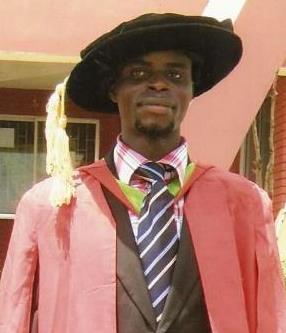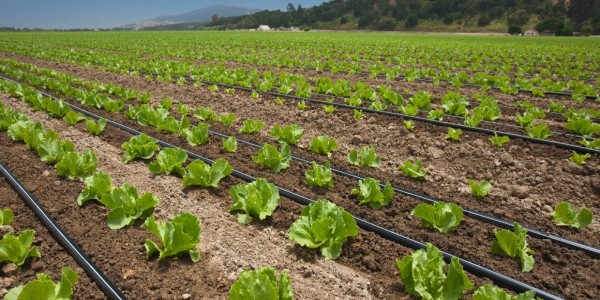 Monsuru Adeleke is an alumnus of Federal University of Agriculture, Abeokuta, Nigeria. He holds a Doctor of Philosophy degree with specialization in Public Health Entomology and Parasitology. He is a trainee of World Health Organization in Molecular Biology and Molecular Epidemiology. He is a member of Global Network in Genetic Barcoding of Life (Canada), Dipteran Morphometrics (USA), Parasitology and Public Health Society of Nigeria, Entomological Society of Nigeria and Zoological Society of Nigeria.
Monsuru Adeleke is an alumnus of Federal University of Agriculture, Abeokuta, Nigeria. He holds a Doctor of Philosophy degree with specialization in Public Health Entomology and Parasitology. He is a trainee of World Health Organization in Molecular Biology and Molecular Epidemiology. He is a member of Global Network in Genetic Barcoding of Life (Canada), Dipteran Morphometrics (USA), Parasitology and Public Health Society of Nigeria, Entomological Society of Nigeria and Zoological Society of Nigeria.
He began his academic career as a Demonstrator/Teaching Assistant in the Department of Biological Sciences, Federal University of Agriculture, Abeokuta in 2004 through 2007 before joining the workforce of Crescent University, Abeokuta as an Assistant Lecturer. He later joined the service of Nigerian Institute of Medical Research (NIMR), Lagos in 2008 as a Research Fellow in Public Health Division (Molecular Parasitology Unit). Due to his passion for teaching and research, he later withdrew his services from NIMR to join the Department of Biological Science, Osun State University, Osogbo in January, 2011. Presently, he is an Associate Professor of Public Health Entomology and Parasitology.
Adeleke is a researcher to the core with much interest in vector-borne diseases. Many of his research outputs have been adjudged as pioneering and novel by many international organizations. He was part of the international team commissioned by the World Health Organization (2007-2011) to unravel the incidence of cross-border migration of black flies along the border of Nigeria and Republic of Benin and its epidemiological implications in both countries. He also conducted the field research that led to the design of novel black fly dubbed Esperanza trap for the surveillance of onchocerciasis vectors in Africa and America under the supervision of Prof Thomas Unnasch (University of South Florida, USA) and Prof Mario Rodriguez-Perez (IPN-CBG, Mexico).
The design of Esperanza trap solved the age-long global research expedition of providing viable replacement for human landing collection which has been a subject of serious ethical criticism for the surveillance of onchocerciasis vectors. The trap was evaluated in Mexico for onchocerciasis elimination programme and the results compared favourably with human landing collections. The use of the trap for vector surveillance has been adopted by International organizations and National bodies such as African Programme for Onchocerciasis Control (APOC), Jimmy Carter Centre (USA), Federal Ministry of Health in Mexico, Nigeria, Ghana, Ethiopia, Burkina-Faso, Uganda, and several others. The publication from the research won World Health Organization/ Pan American Health Organization Best Public Health Literature of the year 2014. The latest of his ground breaking research output has just been published by Systematics Entomology (A societal Journal owned by Royal Entomological Society, United Kingdom). The article provides answer to a long debated hypothesis in black fly taxonomy that the members of Simulium damnosum complex are from incomplete ancestral polymorphism. This research was conducted through collaboration with the Applied Entomology Unit of University of Lagos, Nigeria and Auburn University, USA.
Adeleke has served as Principal Investigator/ Co-investigator in six international and two local research grants and Commissioned studies in the past; and he is currently serving as Principal Investigator for one international and two local research grants/commissioned studies. He has visited quite number of countries and collaborated with scientists in different regions of the world. Adeleke has over sixty (60) published articles to his credit. He has successfully supervised/co supervised five Postgraduate Students and served as External Examiner to two Universities. He has won several awards and recognitions which include among others; scholarships of World Health Organization, International Development Research Centre (IDRC-Canada), and Postdoctoral fellowship of Bill and Mellinda Gates Foundation (USA). He serves as a consultant to World Health Organization, Jimmy Carter Centre (USA), Federal Ministry of Health, Nigeria and State Ministry of Health, Osun State. He is currently the Chairman of Steering/Technical Committee for the control of Neglected Tropical Diseases in Osun State appointed by FMOH-SMOH in 2015.
In his academic career, Adeleke has served in various committees and several leadership positions in the University system. He acted for the Head of Department of Biological Sciences (May –December, 2012); College Examination Officer and Chairman, College Committee on Examination, College of Science, Engineering and Technology (2011-2014); SubDean, Students Affairs (2012-2014); Member, College of SET Review Panel (2012-2016); Member, Committee of Provosts, Deans and Directors (2014 till date); and Member, Business Committee of Senate (2014 till date). He is currently the Ag. Director of Academic Planning, Office of the Vice-Chancellor.
Adeleke has served as Principal Investigator/ Co-investigator in six international and two local research grants and Commissioned studies in the past; and he is currently serving as Principal Investigator for one international and two local research grants/commissioned studies. He has visited quite number of countries and collaborated with scientists in different regions of the world. Adeleke has over sixty (60) published articles to his credit. He has successfully supervised/co supervised five Postgraduate Students and served as External Examiner to two Universities. He has won several awards and recognitions which include among others; scholarships of World Health Organization, International Development Research Centre (IDRC-Canada), and Postdoctoral fellowship of Bill and Mellinda Gates Foundation (USA). He serves as a consultant to World Health Organization, Jimmy Carter Centre (USA), Federal Ministry of Health, Nigeria and State Ministry of Health, Osun State. He is currently the Chairman of Steering/Technical Committee for the control of Neglected Tropical Diseases in Osun State appointed by FMOH-SMOH in 2015.
In his academic career, Adeleke has served in various committees and several leadership positions in the University system. He acted for the Head of Department of Biological Sciences (May –December, 2012); College Examination Officer and Chairman, College Committee on Examination, College of Science, Engineering and Technology (2011-2014); SubDean, Students Affairs (2012-2014); Member, College of SET Review Panel (2012-2016); Member, Committee of Provosts, Deans and Directors (2014 till date); and Member, Business Committee of Senate (2014 till date). He is currently the Director of Academic Planning, Office of the Vice-Chancellor.


